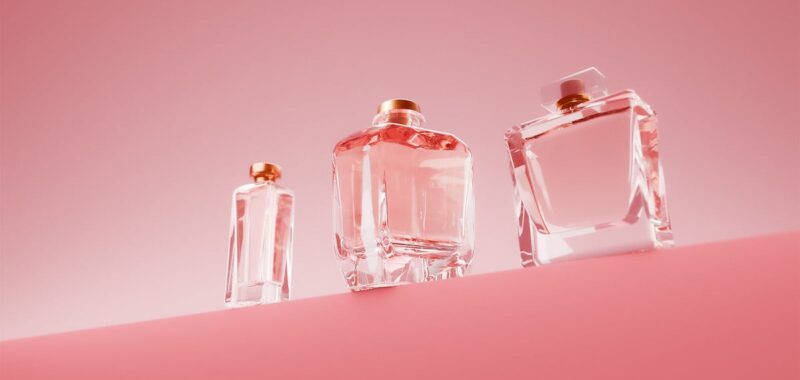
One perfume smells suspiciously like a £355 ($467) bottle of Baccarat Rouge 540 eau de parfum. Another, which has notes of grapefruit, rose and Levantine spice, is reminiscent of a £215 bottle of Penhaligonâs Halfeti. But unlike those luxury brands, these âdupe scentsâ can cost as little as a fiver.
As many as half of UK consumers are now thought to have succumbed to the social media craze for cheap perfumes âinspired byâ well-known luxury fragrances. And lawyers now say perfume brands and beauty companies need greater legal protection from rivals who imitate their products.
Intellectual property lawyers and chartered trademark attorneys told the Observer that the law must catch up to better protect the original creators of perfumes. Some said they had been contacted by companies seeking advice on how to legally dupe a perfume, while others had received enquiries from luxury brands about how to take legal action against dupe scents.
âEverybody wants to smell good and to have an affordable slice of luxury. However, it comes at the expense of proper artists, because perfume creation is an art,â Mireille Dagger, legal director at Broadfield law firm, told the Observer. âThese companies are riding on the coattails of artists. Itâs very unfair. Itâs very hard to create a perfume brand and build it up. It requires expertise, artistic talent, time, energy and investment.â
âThere have been no known cases in the UK of any perfume brands being able to trademark their scent â because under UK law, itâs a requirement that a trademark be graphically representable,â Dagger said.
While perfume manufacturers can trademark their brand names, distinctive labels and unique bottle shapes, none of the lawyers the Observer spoke to believed it would be possible, in practice, to trademark the scent of an original fragrance. A company needs to be able to clearly, precisely and objectively describe what they are protecting with a trademark.
âWhen it comes to scent, you just canât do that, because scent is subjective. Different people smell different things. Itâs very hard to consistently reproduce that scent on paper,â added Dagger. âYouâre not able to put it in writing.â
Equally, a scent cannot usually be patented, said Eloise Harding, a partner in Mishcon de Reyaâs intellectual property department, because this requires a particular perfume formulation to have an âinventive stepâ during its creation. âI donât think any kind of fragrance is likely to have a sufficient level of inventive step,â she said.
A brand owner might not even want to patent its perfume formulation, said Robert Lye, legal director at Gateley. âThe quid pro quo for patent protection is that the patented invention is made public, meaning that anyone would be able to copy the formulation once the patent has expired.â The maximum duration of a patent is 20 years, he added.
Some copycat perfume manufacturers are using gas chromatography-mass spectrometry (GCMS) to break down the complex chemical profiles of expensive perfumes so they can emulate these scents â potentially using cheaper, âsubstandardâ ingredients, Dagger said. The cheaper imitations are particularly popular on TikTok, where there are thousands of posts with the hashtag #perfumedupe.
With the once-inaccessible trade secrets about a perfumeâs formulation now able to be deduced using GCMS, âthere is no way, legally, for perfumers to protect their work,â said Dagger.
She would like to see âdupe brands being forced to pay royalties to the original brands.â As for the law, âsomething creative needs to happen â protection for the fragrance industry is lagging woefully behind beauty and fashion.â
The UK fragrance market was estimated to be worth £1.74 billion in 2024, and is on track to surpass £2 billion by 2029, according to market researchers Mintel.
In a recent survey of 1,435 fragrance buyers in the UK, 50 percent said they had bought a dupe perfume. A third of those surveyed said they would be prepared to buy a dupe fragrance again while 18 percent of those who had not yet bought one said they would be interested in doing so.
âIt is almost a lost cause for perfume brands to defend themselves, if all they are saying is âwe came up with this fragrance firstâ, because I donât think consumers really care about that,â said Dionne Officer, a Mintel research analyst.
Admirers of designer perfume brands no longer think they should have to pay through the nose to have access to luxury scents: âSeeing dupe scents on social media, and knowing influencers are buying them, has made them more acceptable,â she added.
Younger consumers in particular are accustomed to seeing fast-fashion brands duplicating independent designers, and are unlikely to feel it is a taboo to openly wear a dupe scent or even give one as a gift.
âMaybe in older generations, it would have been looked down upon, to copy something,â said Officer. âBut younger consumers have grown up in a time of economic instability, where youâre praised if you get a bargain â itâs seen as quite cool, now.â
By Donna Ferguson
Learn more:
Why the âWalmart Birkinâ Struck a Nerve
While far from the only dupe on the market, the fact that a copycat version of Hermèsâ ultra-coveted bag attracted so much attention speaks to a shift in consumer attitudes towards luxury goods.

